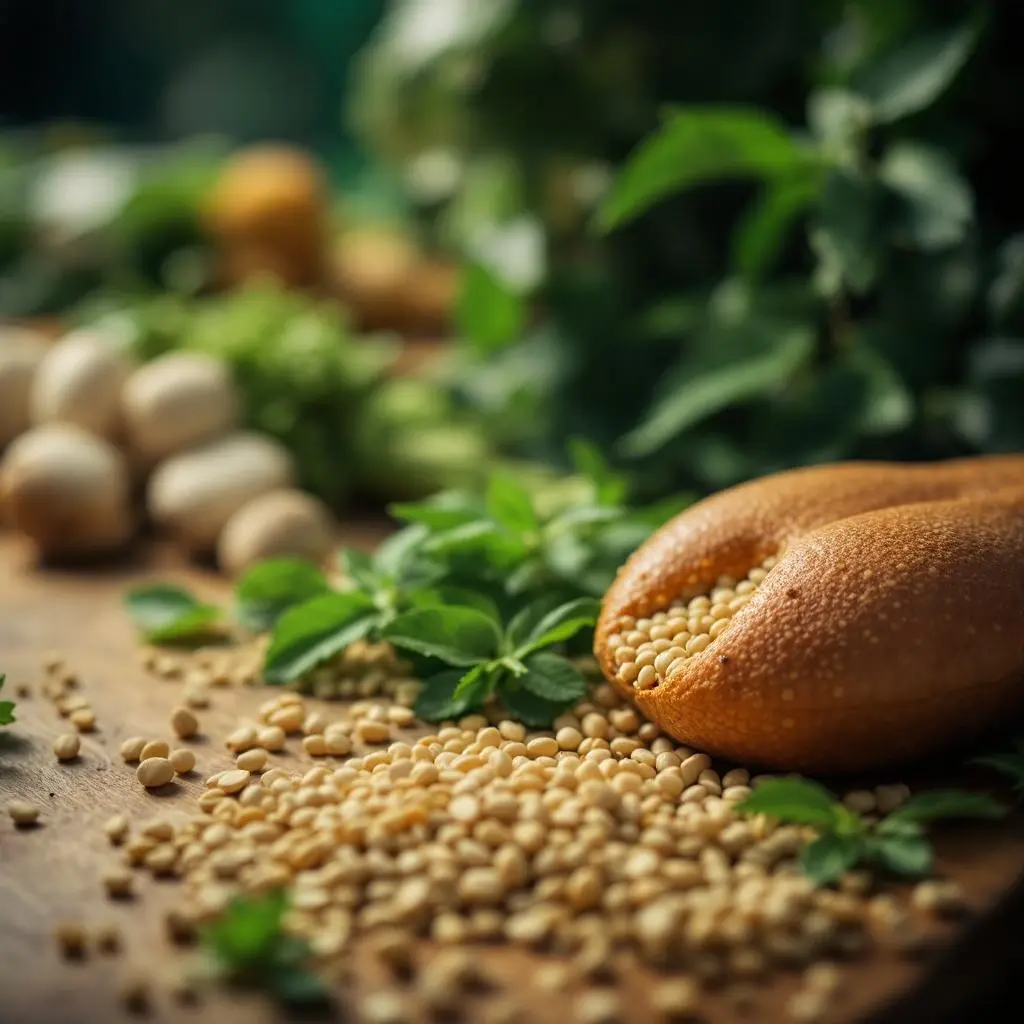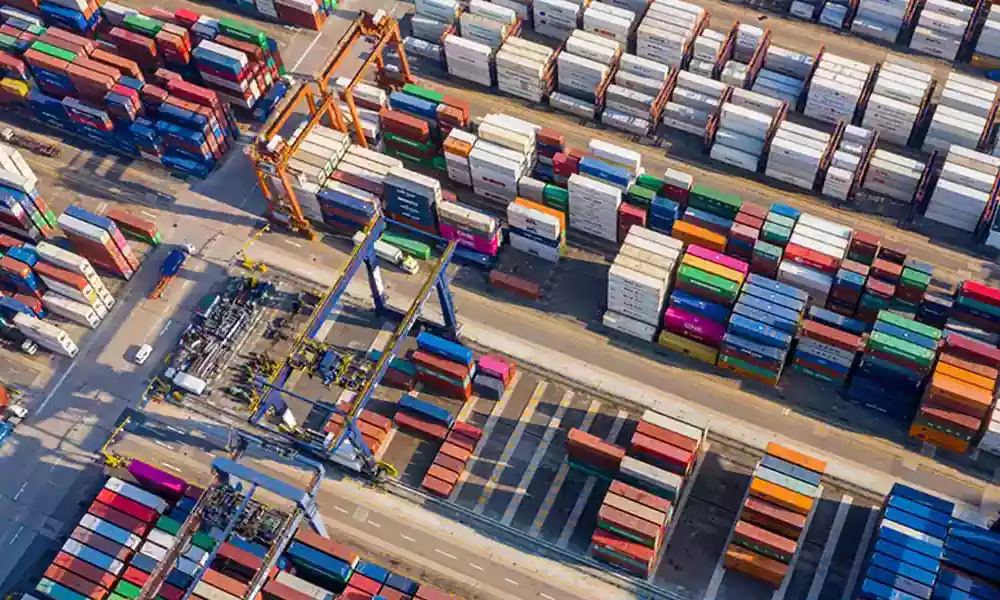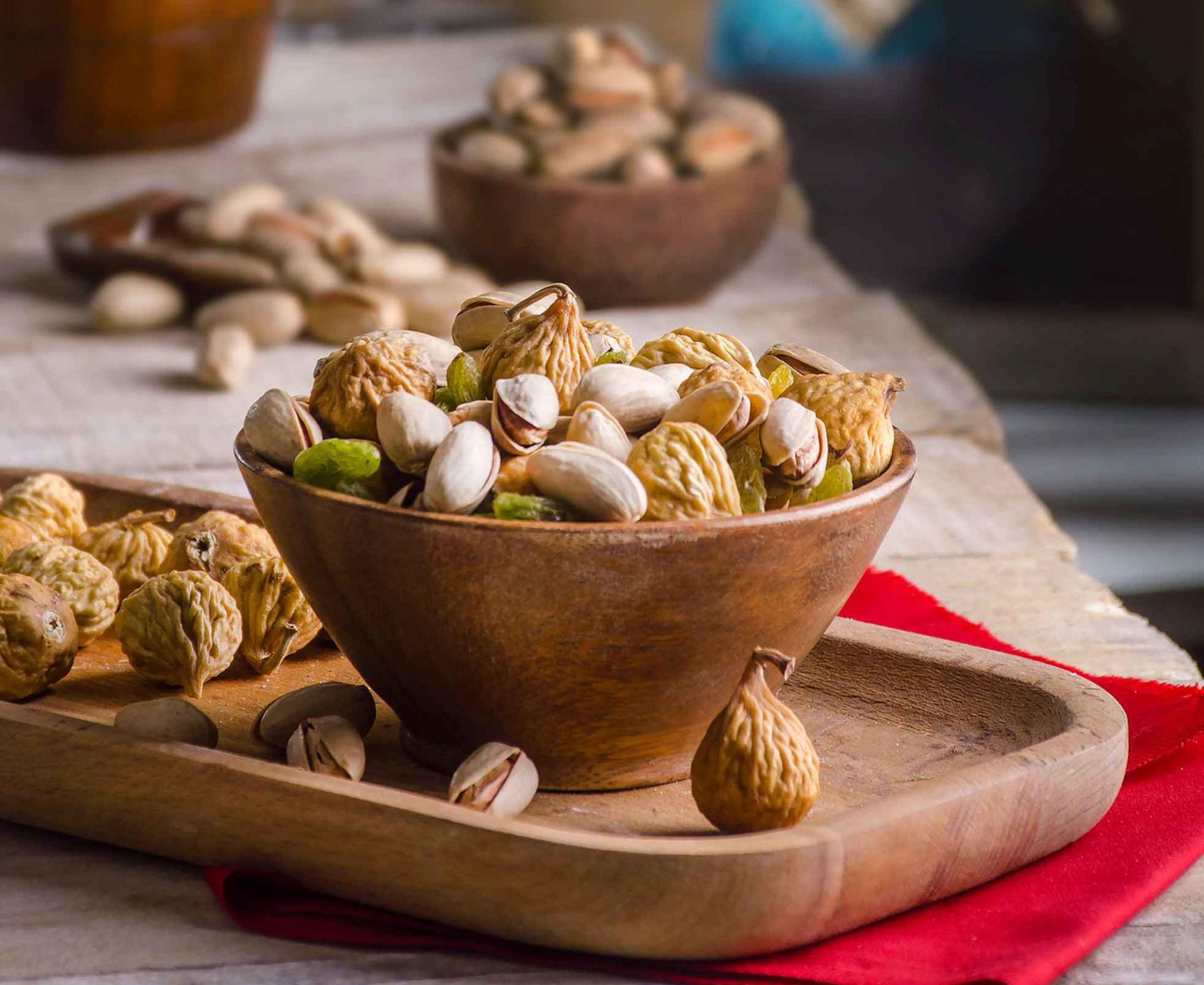Exploring the Appeal: Why Persian Gulf Countries Are Turning to Iranian Organic Products
The landscape of trade in the Persian Gulf is undergoing a significant transformation, particularly in the realm of organic products. As consumers become increasingly health-conscious and environmentally aware, the demand for organic goods has surged. Among the nations in this region, there is a notable shift towards Iranian organic products, driven by a combination of quality, sustainability, and economic opportunity.
Iran has long been recognized for its rich agricultural heritage, and its organic products are no exception. The country boasts a diverse range of organic offerings, from fruits and vegetables to nuts and herbs. This variety not only meets the growing demand in Persian Gulf countries but also aligns with the values of consumers who prioritize health and sustainability. The appeal of Iranian organic products lies in their quality, which is often attributed to traditional farming methods that eschew synthetic fertilizers and pesticides.
One of the key players in facilitating this trade is Hamrah Tejarat Maham Company, an Iranian firm dedicated to promoting and exporting organic products. Their commitment to quality and sustainability has made them a trusted partner for many businesses in the Persian Gulf. By ensuring that their products meet international organic standards, they have positioned themselves as a reliable source for organic goods. This partnership not only benefits Iranian farmers but also provides Persian Gulf countries with access to high-quality organic products that are increasingly sought after by consumers.

The economic implications of this growing interest in Iranian organic products are significant. Persian Gulf countries, including the United Arab Emirates, Saudi Arabia, and Kuwait, are witnessing a shift in consumer preferences. As populations grow and urbanize, there is a heightened awareness of health and wellness. Organic products are perceived as healthier alternatives, and consumers are willing to pay a premium for them. This trend presents a lucrative opportunity for businesses engaged in the import and distribution of organic goods.
Al Alam Al Raqmi L.L.C, based in the United Arab Emirates, is one such company that has recognized the potential of Iranian organic products. By establishing strong trade relationships with Iranian suppliers, they have been able to tap into the burgeoning market for organic goods. Their focus on quality and sustainability aligns with the values of their customer base, which increasingly demands transparency in sourcing and production methods. This partnership not only enhances their product offerings but also supports the broader goal of promoting organic agriculture in the region.
The website fruit-trading.com serves as a vital platform for connecting buyers and sellers in the organic market. It showcases a variety of Iranian organic products, providing detailed information about their origins, certifications, and health benefits. This transparency is crucial in building trust with consumers who are becoming more discerning about the products they purchase. The platform also facilitates trade between Iranian producers and Persian Gulf buyers, streamlining the process of sourcing high-quality organic goods.
As Persian Gulf countries continue to embrace Iranian organic products, several trends are emerging. One notable trend is the increasing focus on local sourcing. Many consumers are now prioritizing products that are grown and produced within the region, reducing their carbon footprint and supporting local economies. Iranian organic products fit this criterion perfectly, as they are often grown using traditional methods that emphasize sustainability and environmental stewardship.
Another trend is the rise of online shopping and e-commerce platforms. The COVID-19 pandemic accelerated the shift towards online shopping, and this trend is likely to continue. Consumers are now more comfortable purchasing organic products online, leading to increased demand for platforms like fruit-trading.com. This shift not only provides convenience for consumers but also opens up new avenues for Iranian producers to reach a wider audience in the Persian Gulf.
Moreover, the growing interest in health and wellness is driving innovation in the organic sector. Persian Gulf countries are witnessing an influx of new organic products, including ready-to-eat meals, snacks, and beverages. Iranian producers are responding to this demand by diversifying their product offerings and developing new organic products that cater to changing consumer preferences. This adaptability is crucial in a rapidly evolving market, and it positions Iranian organic products as competitive players in the Persian Gulf.
The economic impact of this growing trade in Iranian organic products cannot be overstated. As Persian Gulf countries invest in these goods, they are not only enhancing their product offerings but also contributing to the development of sustainable agriculture in the region. This investment fosters job creation and supports local farmers in Iran, ultimately benefiting both economies.
Furthermore, the collaboration between Iranian producers and Persian Gulf companies is paving the way for knowledge exchange and capacity building. As businesses work together, they share best practices and insights into organic farming, production techniques, and market trends. This collaboration enhances the overall quality of organic products available in the market and fosters a culture of sustainability.
In conclusion, the appeal of Iranian organic products in Persian Gulf countries is driven by a combination of quality, sustainability, and economic opportunity. As consumers become more health-conscious and environmentally aware, the demand for organic goods continues to rise. Companies like Hamrah Tejarat Maham and Al Alam Al Raqmi L.L.C are at the forefront of this movement, facilitating trade and promoting the benefits of organic agriculture. The growing interest in Iranian organic products not only enhances the product offerings in the Persian Gulf but also supports sustainable development and economic growth in both regions. As this trend continues to evolve, it will undoubtedly shape the future of organic trade in the Persian Gulf and beyond. The momentum behind Iranian organic products is not just a fleeting trend; it’s a reflection of a broader cultural shift towards healthier living and environmental responsibility. As more consumers become aware of the impact of their choices, they’re seeking out products that not only nourish their bodies but also support sustainable practices. This growing consciousness is creating a fertile ground for Iranian organic goods to flourish in the Persian Gulf market.
Interestingly, the relationship between Iranian producers and Persian Gulf businesses is evolving beyond mere transactions. It’s becoming a partnership rooted in shared values and goals. For instance, initiatives aimed at educating consumers about the benefits of organic farming and the importance of supporting local agriculture are gaining traction. Workshops, seminars, and community events are popping up, fostering a deeper connection between consumers and the origins of their food. This kind of engagement not only builds trust but also empowers consumers to make informed choices.
In addition, the rise of social media has played a pivotal role in this transformation. Platforms like Instagram and Facebook are being utilized by businesses to showcase their organic products, share recipes, and highlight the stories behind their brands. This storytelling aspect resonates with consumers, who are increasingly looking for authenticity in the products they purchase. It’s not just about buying organic; it’s about connecting with the people and practices that bring those products to life.
Moreover, the emphasis on health and wellness is leading to innovative marketing strategies. Companies are not just selling organic products; they’re promoting a lifestyle. This includes collaborations with fitness influencers, nutritionists, and chefs who advocate for the benefits of organic eating. By aligning with these figures, Iranian organic brands can reach a broader audience and reinforce the message that choosing organic is a choice for a healthier future.
The potential for growth in this sector is immense. As Persian Gulf countries diversify their economies and seek to reduce their reliance on oil, investing in organic agriculture presents a viable path forward. It aligns with global trends towards sustainability and health, making it an attractive option for policymakers and business leaders alike. The emphasis on organic products can also contribute to food security in the region, as local sourcing reduces dependency on imports and enhances resilience against global supply chain disruptions.
Looking ahead, it’s clear that the future of trade in organic products in the Persian Gulf will be shaped by ongoing collaboration and innovation. The synergy between Iranian producers and Gulf businesses is not just about profit; it’s about creating a sustainable ecosystem that benefits everyone involved. As these partnerships deepen, we can expect to see even more exciting developments in the organic sector, from new product lines to improved farming techniques that prioritize environmental health.
In summary, the rise of Iranian organic products in the Persian Gulf is more than just a market trend; it’s a movement towards a healthier, more sustainable future. With the combined efforts of producers, businesses, and consumers, this transformation is poised to make a lasting impact on the region’s agricultural landscape. As we continue to witness this evolution, it’s clear that the journey towards organic excellence is just beginning, and the possibilities are endless. As we delve deeper into this burgeoning sector, it’s important to recognize the unique challenges that come with the growth of Iranian organic products in the Persian Gulf. For one, navigating the regulatory landscape can be complex. Each country has its own set of standards and certifications for organic goods, which can pose hurdles for exporters. However, companies like Hamrah Tejarat Maham are proactively addressing these challenges by investing in compliance and certification processes. This not only ensures that their products meet the necessary standards but also builds credibility in the eyes of consumers and partners alike.
Another aspect worth mentioning is the role of technology in this transformation. With advancements in agricultural practices and supply chain management, Iranian producers are increasingly adopting smart farming techniques. These innovations, such as precision agriculture and data analytics, enable farmers to optimize their yields while minimizing environmental impact. By leveraging technology, they can ensure that their organic products are not only high-quality but also produced sustainably. This tech-savvy approach resonates well with the younger, more environmentally conscious consumers in the Persian Gulf, who are keen on supporting brands that prioritize sustainability.
Additionally, the importance of branding cannot be overstated in this competitive market. Iranian organic products are often seen as a premium choice, and effective branding can help convey this message. Companies are beginning to invest in packaging that highlights the organic nature of their products, along with their health benefits. Eye-catching designs and clear labeling can make a significant difference in attracting consumers who are navigating the crowded organic market. It’s all about creating a strong identity that stands out and resonates with the values of health-conscious shoppers.
Moreover, the potential for collaboration extends beyond just trade relationships. There’s a growing movement towards creating a community around organic living. This includes partnerships with local chefs and restaurants that focus on farm-to-table concepts, showcasing Iranian organic ingredients in their dishes. Such collaborations not only promote the products but also educate consumers about the benefits of organic eating. It’s a win-win situation that elevates the profile of Iranian organic goods while supporting local culinary talent.
Let’s not forget the environmental aspect of this shift. As Persian Gulf countries grapple with issues related to climate change and sustainability, the adoption of organic farming practices can play a crucial role in mitigating these challenges. Organic agriculture typically uses fewer resources and promotes biodiversity, which is essential for maintaining healthy ecosystems. By investing in Iranian organic products, Gulf nations are not just enhancing their food security; they’re also taking meaningful steps towards environmental stewardship.
Looking forward, the landscape of organic trade in the Persian Gulf is likely to continue evolving. As consumer preferences shift and the demand for transparency grows, businesses will need to adapt quickly. This means staying ahead of trends, whether it’s through product innovation, marketing strategies, or sustainability initiatives. The companies that succeed will be those that remain agile and responsive to the changing dynamics of the market.
In essence, the rise of Iranian organic products in the Persian Gulf is a multifaceted phenomenon. It’s about more than just supply and demand; it’s a reflection of changing values, a commitment to sustainability, and a desire for healthier living. As we witness this exciting transformation, it’s clear that the future holds great promise for Iranian organic goods, paving the way for a healthier, more sustainable region. The journey is just beginning, and the potential for growth and innovation is truly limitless.




